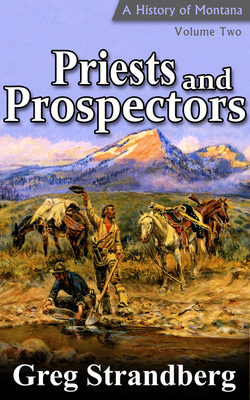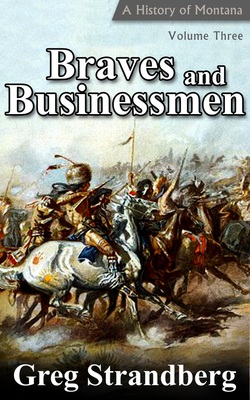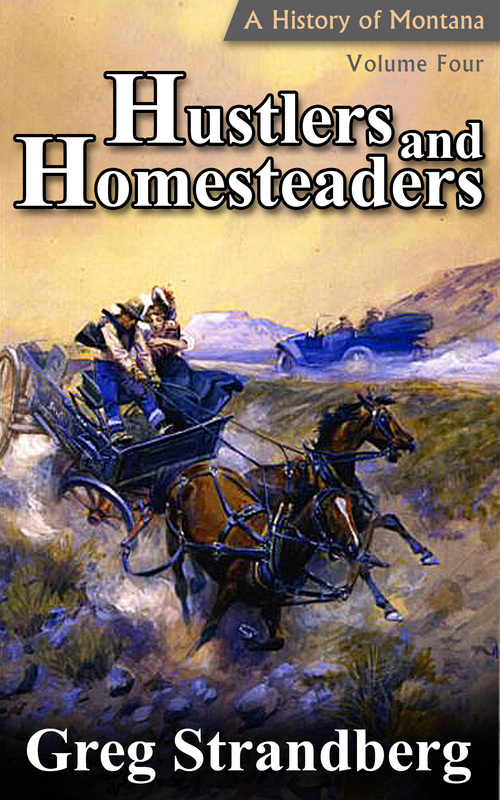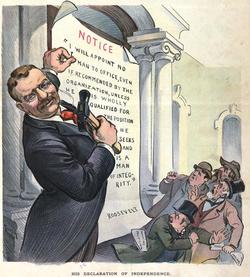 Cartoon from Puck Magazine, c 1890s
Cartoon from Puck Magazine, c 1890s He went after the Merit System, which had political hacks, er…appointees, put into office instead of the people that were most qualified to do the job.
This created a bureaucracy that was wholly ineffective and inefficient and cost-prohibitive. Roosevelt meant to smash it. And to do that he got the press on his side, for as biographer Doris Kearns Goodwin writes, he “understood that public opinion was the single most effective prod for recalcitrant party leaders in the cabinet and the Congress.” (p 138)
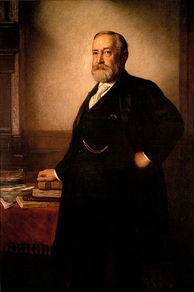 Benjamin Harrison, 1895
Benjamin Harrison, 1895 The editors of Harrison-loyal papers, such as The Washington Post, also lambasted Roosevelt, especially when he got into fights with the corrupt postmaster general. Remember, many organs of truth rely upon corruption to exist, or benefit from it in some way. Back in the 1890s, many corrupt political appointees required numerous papers to have even an inkling of what was going on, and that meant money in those publishers’ pockets.
Oh well – Roosevelt had the last laugh. By the time the 1892 election came around Harrison lost to Grover Cleveland by 3%, with Populist James B. Weaver taking 8.5% of the vote, primarily in the West. And Cleveland kept Roosevelt on in the position, a position the future-president would hold until 1895.
It’s interesting how the political winds can blow, and how aggressiveness in the cause of justice can get you places.




